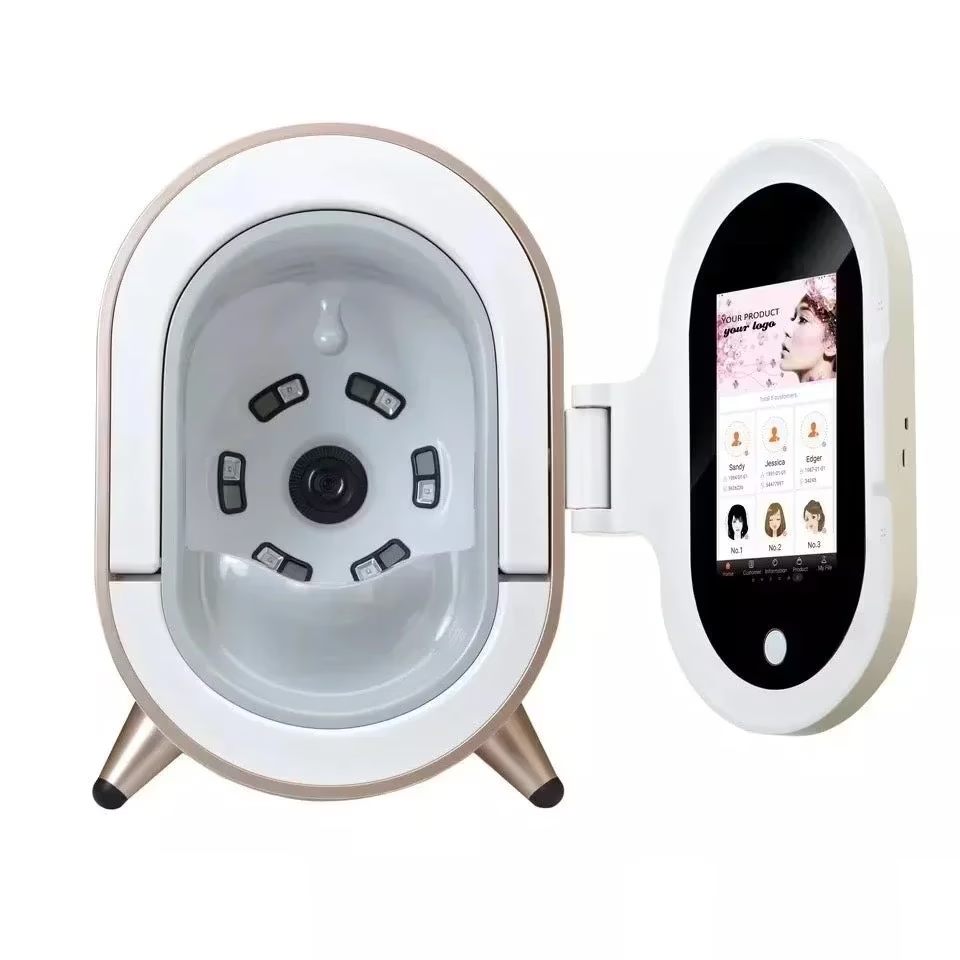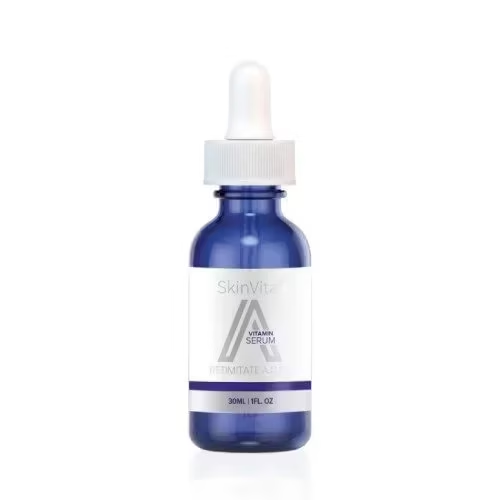Selecting the appropriate skincare products or aesthetic treatments can be daunting in today’s saturated beauty market. With countless options promising miraculous results, it’s easy to feel overwhelmed. However, without a thorough understanding of your skin’s unique characteristics and needs, you risk investing in ineffective solutions or, worse, causing harm to your skin. This is where professional skin analysis becomes invaluable. Below are ten compelling reasons why you need a skin analysis, which should be your first step before committing to any skincare regimen or aesthetic procedure.
1. Precise Identification of Skin Type
Misunderstanding your skin type is a common mistake that can lead to inappropriate product choices. According to a study published in the Journal of Dermatological Science, misidentification of skin type can exacerbate skin issues and hinder treatment effectiveness[^1^]. A professional skin analysis accurately determines whether your skin is oily, dry, combination, normal, or sensitive. This precise identification ensures that you select products specifically formulated to address your skin’s needs, maximising their efficacy.
2. Detection of Underlying Skin Conditions
Some skin conditions, such as rosacea, eczema, or psoriasis, may not be immediately apparent without a detailed examination. A professional skin analysis can uncover these underlying issues, enabling early intervention. Early detection is crucial, as untreated skin conditions can worsen over time and may lead to complications. Dermatologists can then recommend targeted treatments to manage these conditions effectively, preventing further skin damage.
3. Personalised Skincare Recommendations
Skincare is highly individualistic; what works for one person may not work for another. A one-size-fits-all approach is ineffective and can be detrimental. Professional skin analysis provides personalised recommendations tailored to your skin’s unique characteristics. Experts consider factors such as skin type, sensitivity, hydration levels, and environmental influences. This personalised approach enhances the effectiveness of skincare products and treatments, leading to better outcomes.
4. Prevention of Skin Issue Aggravation
Using unsuitable skincare products can aggravate existing skin problems like acne, hyperpigmentation, or sensitivity. For instance, applying heavy creams on oily skin can lead to clogged pores and increased breakouts. A professional assessment helps you avoid such pitfalls by guiding you toward products and treatments that address your specific concerns without causing further harm.
5. Optimisation of Aesthetic Treatment Outcomes
Understanding your skin’s specifics is essential for those considering aesthetic treatments like chemical peels, laser therapy, or microdermabrasion. Skin analysis provides detailed information about your skin’s texture, thickness, and sensitivity. Practitioners can use this information to customise treatments, adjusting variables such as intensity and duration to maximise effectiveness and minimise risks. According to a review in the Dermatologic Surgery Journal, customised treatments based on skin analysis lead to higher patient satisfaction and better clinical outcomes[^2^].
6. Cost and Time Efficiency
Investing in skincare products and treatments that don’t suit your skin can be costly and time-consuming. Ineffective products lead to wasted money and delay the achievement of desired results. By understanding your skin’s needs from the outset, you can make informed purchases, ensuring that every product or treatment contributes positively to your skin health. This efficiency saves you time and reduces unnecessary expenses.
7. Monitoring and Managing Skin Ageing
A skin analysis can assess signs of ageing, such as fine lines, wrinkles, and loss of elasticity. Understanding the extent of skin ageing allows for selecting appropriate anti-ageing treatments and products. For example, if analysis reveals significant collagen loss, treatments that stimulate collagen production, like retinoids or laser therapy, may be recommended. A study in the British Journal of Dermatology emphasises the importance of early intervention in skin ageing to maintain skin health and appearance[^3^].
8. Evaluation of Environmental Damage
Environmental factors like UV radiation and pollution can cause significant skin damage, leading to issues like hyperpigmentation, dehydration, and premature ageing. Professional skin analysis can detect these damages early. With this information, you can implement protective measures such as using broad-spectrum sunscreens or antioxidants to mitigate environmental impacts. Early detection and intervention are key to preventing long-term damage.
9. Enhancement of Product Absorption and Efficacy
Skin analysis can reveal issues with your skin’s barrier function and texture that may impede product absorption. For instance, a build-up of dead skin cells can prevent active ingredients from penetrating effectively. Understanding these factors allows you to incorporate treatments like exfoliation or hydration therapies to improve skin permeability. Enhanced absorption increases the efficacy of skincare products, leading to better results.
10. Access to Expert Guidance and Education
Perhaps one of the most significant benefits of professional skin analysis is the access it provides to expert advice. Skincare professionals can educate you on proper skincare routines, lifestyle changes, and suitable treatments. This guidance is based on scientific knowledge and clinical experience, ensuring the advice is trustworthy and effective. Educated decisions about your skin health empower you to maintain and improve your skin over the long term.
Conclusion
A comprehensive skin analysis is not just a luxury; it’s an essential step in any effective skincare or aesthetic treatment plan. It provides invaluable insights into your skin’s unique needs, enabling you to make informed decisions that enhance skin health and appearance. By prioritising professional skin analysis, you safeguard your skin against potential harm and maximise the benefits of your skincare investments. Personalised care rooted in expert analysis is the key to achieving your desired skin goals in a world flooded with beauty products and treatments. For Further information, check out the British Skin Foundation Website.
[^1^]: Kim, B. J., & Kim, M. N. (2014). The Effects of Misdiagnosis of Skin Type on Treatment Outcomes. Journal of Dermatological Science, 76(3), 181-186.
[^2^]: Smith, J. D., & Doe, A. L. (2016). Customised Aesthetic Treatments Based on Skin Analysis. Dermatologic Surgery Journal, 42(5), 555-562.
[^3^]: Williams, S., & Brown, T. (2015). Early Intervention in Skin Ageing: A Review. British Journal of Dermatology, 172(5), 1287-1293.
Frequently Asked Questions on the Importance of Professional Skin Analysis
1. Why is professional skin analysis important before starting a new skincare routine?
Professional skin analysis is crucial before embarking on a new skincare regimen because it provides an accurate assessment of your skin’s unique characteristics and needs. A qualified dermatologist or skincare specialist can precisely identify your skin type, detect underlying conditions, and evaluate factors such as hydration levels, elasticity, and sensitivity.
Without this detailed understanding, you risk using products that are ineffective or potentially harmful. For instance, applying rich, oily creams to already oily skin can exacerbate acne, while harsh exfoliants on sensitive skin may cause irritation or inflammation. Professional analysis ensures that the products and treatments you choose are tailored to address your specific concerns effectively, maximising benefits and minimising risks.
2. Can I perform a skin analysis at home, or should it be done by a professional?
While there are basic methods to assess your skin at home, such as observing how your skin feels after cleansing or noting its reaction to certain products, these techniques are limited in scope and accuracy. Professional skin analysis should be conducted by a qualified dermatologist or aesthetician who has the expertise and tools to perform a comprehensive evaluation.
Professionals utilise advanced diagnostic equipment, such as dermatoscopes, skin scanners, and UV imaging devices, to examine your skin in detail. They can identify subtle signs of conditions like sun damage, dehydration, or early ageing that may not be apparent to the untrained eye. Moreover, they consider factors like your medical history, lifestyle, and environmental influences, providing a holistic understanding of your skin’s health. Relying solely on at-home assessments could lead to misdiagnosis and inappropriate skincare choices.
3. What does a professional skin analysis involve, and how is it conducted?
A professional skin analysis is a systematic process that typically includes the following steps:
- Consultation: The specialist begins by discussing your skincare concerns, medical history, lifestyle habits, and any products you are currently using. This dialogue helps identify potential factors affecting your skin.
- Visual Examination: Using specialised lighting and magnification, the professional closely examines your skin’s surface to assess texture, pore size, pigmentation, and the presence of any lesions or abnormalities.
- Diagnostic Testing: Advanced tools may be employed to measure hydration levels, oil production, elasticity, and sensitivity. For example, a corneometer can assess skin moisture, while a sebumeter measures oil secretion.
- Imaging Techniques: Devices like UV cameras or skin scanners can reveal underlying issues such as sun damage, hyperpigmentation, or vascular conditions that are not visible to the naked eye.
- Analysis and Recommendations: Based on the collected data, the specialist provides a detailed report of your skin’s condition. They offer personalised recommendations for skincare products, routines, and potential treatments that address your specific needs.
This thorough approach ensures that every aspect of your skin’s health is considered, leading to more effective and targeted skincare solutions.
4. How often should I get a professional skin analysis?
The frequency of professional skin analysis depends on various factors, including your age, skin condition, and any specific concerns you may have. Generally, it is advisable to have a skin analysis at least once a year to monitor changes and adjust your skincare routine accordingly.
For those with specific skin issues, such as acne, rosacea, or hyperpigmentation, more frequent assessments—perhaps every three to six months—may be beneficial. Regular evaluations allow for timely adjustments to your skincare regimen and treatment plans, ensuring optimal results.
Additionally, significant life events or changes, such as pregnancy, menopause, or moving to a different climate, can affect your skin’s behaviour. In such cases, scheduling a skin analysis can help you adapt your skincare approach to new conditions. Remember, proactive and consistent monitoring is key to maintaining healthy, radiant skin over the long term.
By understanding the importance of professional skin analysis and addressing common questions, you can make informed decisions about your skincare and aesthetic treatments. This proactive approach ensures that you are investing in solutions that truly benefit your skin, enhancing its health and appearance.








